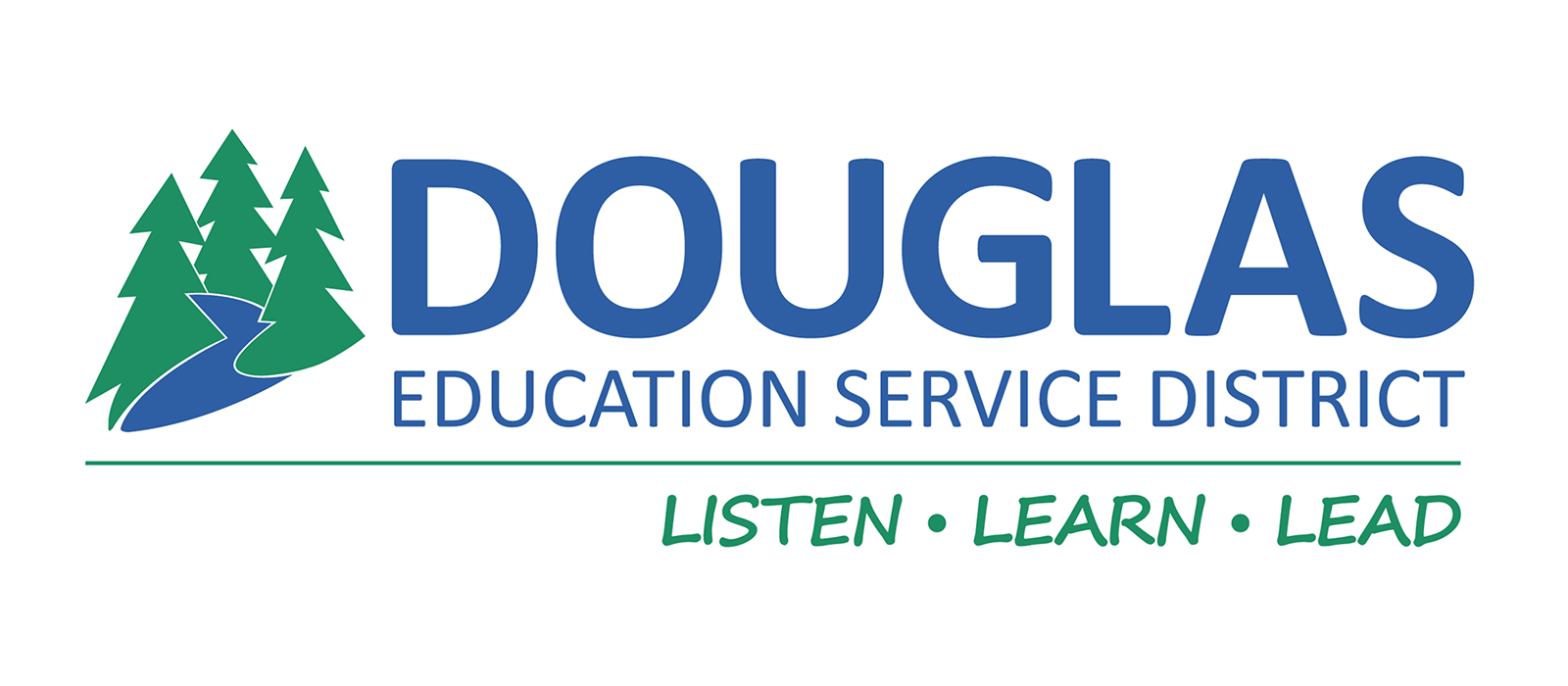Special Programs
The Douglas ESD Special Education Service team manages a number of special programs throughout our 13-district region and beyond. These special programs include:
Complex Needs Classroom — The Complex Needs Classroom (CNC), operated by the Douglas ESD and located at Fir Grove Elementary in Roseburg, serves medically fragile students whose disabilities are restrictive enough that general education classrooms are unsuitable for their needs. These children often have a number of medical complications. Most have varying degrees of visual impairments and all are in wheelchairs. At least once a week occupational, physical and visual therapists and a registered nurse visit to help classroom staff develop or refine instruction. Douglas ESD provides this specialized classroom to all our member school districts. In the past, students from as far as Drain and Canyonville have traveled to the CNC. Students can range in age from kindergarten to 21 years old. Classroom activities are designed to strengthen and build on motor and communication skills. Students also are coached to make choices through the use of assistive technology, such as switches and buttons. The class also makes weekly visits to the YMCA of Douglas County to go swimming. For more information, contact CNC Teacher Pamela Schneider at 541-440-4095 or pamela.schneider@douglasesd.k12.or.us
Juvenile Department Education Program — Douglas ESD contracts with Oregon Department of Education to provide the Juvenile Detention Education Program. The mission of this program is to: provide a high quality education to students detained in Oregon County Juvenile Detention Centers. Education is provided by a licensed teacher who supports students who are detained. In doing this we value: Assessment is a critical component of the education of the student; Standards-based instruction to promote success; Services delivered by qualified professionals; the physical, emotional, and social safety of students and staff; and, Collaboration with partners including parents, county juvenile departments, the Oregon Youth Authority, school districts, education service districts, and other community groups. For more information on JDEP, contact JDEP Teacher Mary Malone at 541-440-4764 or mary.malone@douglasesd.k12.or.us.
Nursing Services — School nursing services provide assistance to districts through the following services: chronic disease management, health services to ill and injured students, liaison services between home, school and community health care resources and safety growth and development. These services will be prioritized by the severity or life threatening situation and by other activities mandated by legislation. The nurse will also provide activities to districts that improve health and participation in the educational process. Overall, the service is targeted to increase student safety through nurse management of health issues, teaching and promotion of health management. This position is in conjunction with our existing nursing services that provide more acute care for severely disabled children in Douglas County. For more information on Nursing Services contact Barb Hofford at 541-863-9479.
Occupational and Physical Therapy — Direct and/or consultative services are provided for students with orthopedic impairment, autism spectrum disorder, traumatic brain injury and/or other health impairment with significant motor involvement. Services are provided by occupational therapists, physical therapists, a complex needs nurse and other consultants. For more information contact Sondra Williams, Douglas County EI/ECSE Coordinator, 54-1440-4792.
Programs for Students with Vision Impairment and Deaf/Hard of Hearing — In partnership with Southern Oregon ESD, the Southern Oregon Regional Programs for the Visually Impaired and Deaf/Hard of Hearing provide services in Douglas, Jackson, Josephine, Klamath and Lake counties. Itinerant teachers for the visually impaired provide assessment of vision needs, ongoing in-service consultation for classroom teachers and support staff, compensatory skills development (such as braille, orientation/mobility, use of appropriate assistive technology), equipment and materials (curriculum, educational aids), individualized instruction, home instruction and parent training, transition activities and also social and recreational opportunities to further communication and pro-social behaviors. Teachers for the deaf and hard of hearing deliver instruction through infant/parent home intervention programs, preschool, elementary and secondary levels. Direct instruction includes language, auditory compensation, cognitive development, reading/comprehension skills and academic subjects based on the district’s curriculum and the student’s needs. Assessment, assistive technology, training in communication and many more services are provided to students, parents, school staff and community members.
